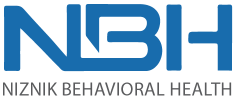National Recovery Month: End the Stigma
For 31 years, SAMHSA has sponsored National Recovery Month each September. One of the important efforts spearheaded during National Recovery Month is bringing an end to the various levels of stigma associated with substance abuse disorders, whether personal, social, or institutional. A study conducted by the National Institutes of Health found conclusively that patients who are seeking treatment fare much better when the stigmas of substance abuse are lessened.
The Consequences of Stigma
People struggling with substance abuse disorders who internalize stigma are less likely to enter effective treatment programs that can put them on the path to sobriety. They are victims of a perspective on substance abuse that arose before modern medicine came to understand that addiction is a disease, not a choice. If these people suffered from any other condition such as diabetes or arthritis, they would seek medical treatment, but the emotional pain caused by stigma puts them at risk of further social isolation, thereby endangering their lives, livelihoods, and relationships.
People who struggle with substance abuse often fear reprisals if they enter treatment such as the loss of their jobs, families, or homes. Sometimes they fear criticism, verbal abuse, and ostracization. The National Institute on Drug Abuse reports that rehabilitation works, but people who suffer from substance abuse disorders must feel free to enter rehab without fear of judgment, condemnation, or adverse consequences.
Ways to Reduce Stigma
Fortunately, there are ways to mitigate and reduce stigma, whether on the personal, societal, or institutional levels. Friends and family members of people who suffer from substance abuse disorders can join together with the media and healthcare providers to promote the aims of National Recovery Month to their communities and improve conditions on all levels for people who struggle with addictions so they can get the help they need.
- Nonjudgmental Language: When referring to a person who has a substance abuse disorder, it is never appropriate to denote them only in terms of their disease such as “drug abuser” or “addict.” A person who suffers from any disease or condition is always a person first.
- Letters to Newspaper Editors: People can take a stand against stigma in their communities by writing letters to editors of newspapers in order to educate the public about substance abuse disorders and about how recovery is not a one-time thing but a day-by-day, lifetime journey.
- Media Advocacy: People can organize media advocacy campaigns to work toward eradicating stigma by bringing aboard healthcare professionals, media personalities, and grassroots volunteers. Media advocacy can and should integrate traditional media outlets like television with popular social media channels like Facebook and Twitter.
When people learn more about addiction as a disease from reputable, credible sources, they are less likely to perpetuate ideas and behaviors that encourage stigma. People who are knowledgeable about substance abuse disorders need to correct others who are trying to spread wrongheaded ideas and prejudice. Hand-in-hand with the efforts of National Recovery Month, community leaders must encourage the acceptance of solid, evidence-based information.

